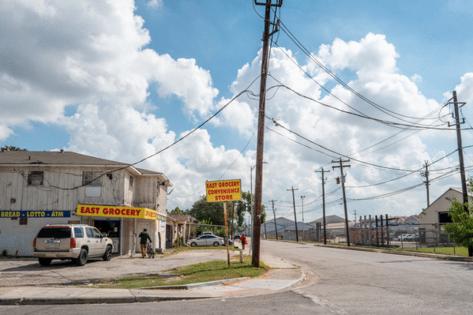Abby McCloskey: Even GOP voters are souring on this economy
Published in Op Eds
Here’s a shocker: Democrats and Republicans don’t see eye-to-eye on the economy.
But focusing on the partisan divide obscures the bigger picture: Majorities in both parties think the economy is not good. This is bad news for Republicans, the party in power and also the party historically more trusted with the economy. And it’s bad news for Trump. His election hinged on many cultural factors, but the man with a golden escalator was supposed to get us out of the Biden-dug economic slump.
Only 44% of Republicans think the economy is excellent or good, according to new data from the Pew Research Center. Compare this to the soaring approval of GOP voters in Trump’s first term before COVID hit — when 81% thought the economy was good.
Only 10% of Democrats think the economy is doing well, roughly 30 points lower than during most of Trump’s first term — when they were not as enthusiastic as Republicans, but when many still said the economy was good — and lower than during the Biden presidency. Independents, too, are less than enthused these days, with 74% classifying the economy as poor.
Inflation has mellowed (though is still elevated), but this isn’t quite the rosy economy many voters thought was waiting for us on the other side of Bidenomics. Hiring remains slow, costs — like groceries and housing — are still high, and credit is tight. GDP is being propped up more by a drop in imports than by surging consumer spending.
The stock market keeps reaching new heights, but there are more than whispers of froth. Gold prices, usually a measure of investors’ anxieties, are climbing.
It feels more like crouching than soaring. And it feels as if, somehow, this is the plan — which perhaps explains the bad economic mood.
Of course, even if we were in an era of rip-roaring growth, politics makes it hard to see clearly what’s going on and come to a consensus. This is due to blinding polarization but also to different ideals of what good looks like.
In broad strokes, Republicans may favor an economy with roaring growth, light taxes and limited regulation. Democrats might tolerate less growth if that means there’s less income inequality and a greater level of redistribution. This is how people of different political persuasions can look at the same economy and assess its strength differently.
Moreover, we all should be cautious about linking economic well-being too closely to presidential power. Economies move up and down for all sorts of reasons that presidents cannot control — war, intergenerational debt build-up, new technologies, and, yes, pandemics.
But presidential leadership matters too. The kicker in Pew’s data is that even among Republicans, most (53%) think that President Trump’s policies are either having no impact or making the economy worse.
This cannot be explained away as mere vibes.
Despite enormous tax cuts in this summer’s reconciliation bill and sweeping reductions to the federal workforce — things Republicans would typically cheer — tariffs and political uncertainty are taking a toll. When a voter balances the tax cuts from the One Big Beautiful Bill Act against tariffs raising prices on everything from groceries to clothes, it feels like running just to stay in place.
Some in the MAGA orbit might argue that Trump’s economic policies will eventually bring manufacturing jobs back to the U.S. We’re digging deep now to set a new foundation of prosperity. It takes time for new factories to be built and new supply chains to be established. With patience, a better future awaits!
But Republican voters aren’t buying that anymore, either. The share of Republicans who expect the economy to be better next year is rapidly declining, from 73% in February to 55% last month. Democratic voters are at a microscopic 6%.
What happens next? Democrats see an opportunity to make an economic play. Among the coastal elite there’s talk of an “abundance agenda,” which as far as I can tell is a blend of old-school libertarianism cutting red tape and heavy public investment. Others, such as New York Mayor hopeful Zohran Mamdani, are going hard-core socialist, suggesting the government run grocery stores and put on price controls.
It remains to be seen what Republicans have up their sleeves. The party in power doesn’t have to be as scrappy and creative because it already has the prize.
But staying in power is a different story. Voters tend to want change when their pocketbooks are hurting.
So this bad economic mood should encourage some new economic thinking in the GOP. Or better yet, to scrap this new economic energy for some of the old. After all, there’s unanimity that large shares of people of both parties preferred the economy of Trump’s first term.
____
This column reflects the personal views of the author and does not necessarily reflect the opinion of the editorial board or Bloomberg LP and its owners.
Abby McCloskey is a columnist, podcast host, and consultant. She directed domestic policy on two presidential campaigns and was director of economic policy at the American Enterprise Institute.
_____
©2025 Bloomberg L.P. Visit bloomberg.com/opinion. Distributed by Tribune Content Agency, LLC.
























































Comments